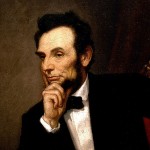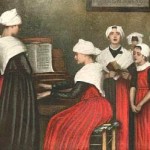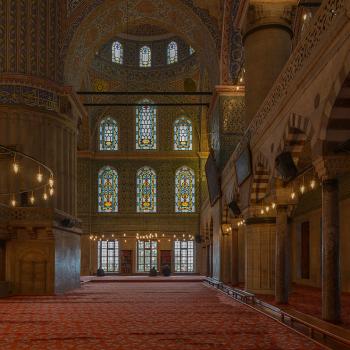It looks like Pope Francis and ISIS share more than most people think. Crawford Gribben, an expert in millennialism, explains how:
Hailed for his apparently progressive social views, even as many of his admirers remain mystified by his repeated references to supernatural conflict, the Holy Father has given his critics and adherents a big clue to understanding his worldview: on several occasions, he has informed journalists that the best way they can understand his priorities and concerns is to read a 1907 science fiction novel by R. H. Benson (1871-1914), an English convert to Catholicism.
Benson was a trophy convert, a son of the archbishop of Canterbury who had taken Anglican orders before his conversion in 1903. His novel, Lord of the World, imagines the condition of England after the collapse of the established church and the disappearance of the House of Lords under suffocating socialism, as a Freemason conspiracy established Communist dominance in Europe.
The atmosphere is one of civilisational conflict, as a mysterious eastern army driven by “religious fanaticism” prepares for war with the West in an attempt to “proselytise by the modern equivalents of fire and sword those who had laid aside for the most part all religious beliefs except that in Humanity.”
Meanwhile, ISIS also marches to the beat of an Islamic apocalypticism:
the ideologues who pose the most serious threats to Middle Eastern security make no bones about referring to their sacred tradition to justify their activity.
And the crusading values that have most obviously been developed in apocalyptic terms are those propelling the military strategy of Islamic State.
These ideas support the identification of Abu Bakr al-Baghdadi as the end-times military leader who will secure the final destruction of the West – the madhi. Islamic State supporters display black flags not merely for the purposes of identification, but to allude to prophecies in the hadith which specify that these banners will identify the end-times army.
Throw in evangelical Protestant convictions about the end times, and we have a whole lot of end-time piety fomenting the world. Take, for instance, Mark Noll’s summary of Matthew Sutton’s recent book on evangelicals and end time and the role that Billy Graham played in keeping apocalyticism on the born-again Protestant front burner:
Sutton’s last full chapter, entitled “Apocalypse Now,” features the public ministry of Billy Graham, who burst on to the national scene in 1949 with a much-publicized revival meeting in Los Angeles. To Sutton, Graham exemplifies the way that American evangelicals have charged their understanding of Christianity with cold-war apocalypticism. Sutton documents carefully the continued presence of such themes for Graham, including his widely read books World Aflame (1965) and Approaching Hoofbeats: The Four Horsemen of the Apocalypse (1983). He concedes that Graham mellowed over the years. Yet he also insists that Graham’s view of a cataclysmic End—along with its political concomitants—have keyed his entire public career, and therefore resonated with millions of American evangelicals.
Put all that together and you have a recipe for a crisis of international proportions. Odd then are the apostle Paul’s words to Christian, just before he himself writes about the second coming of Christ:
we urge you, brothers, to do this more and more, and to aspire to live quietly, and to mind your own affairs, and to work with your hands, as we instructed you, so that you may walk properly before outsiders and be dependent on no one. (1 Thess 4:10-12)
Is it possible to live apocalyptically in a quiet and peaceful way? Paul seemed to think so.
(Image)












